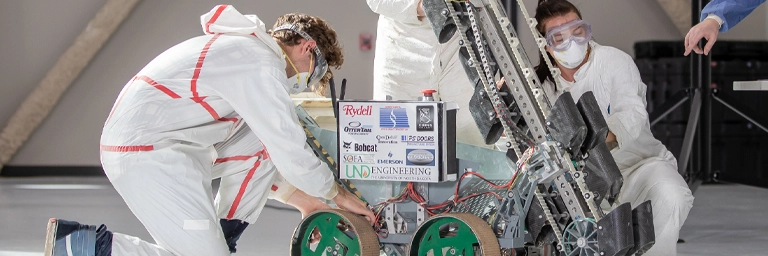Master's in Electrical Engineering
Master the critical components, devices and electrical systems that make our world work.
Expand your career opportunities with a master's in electrical engineering from a Carnegie Doctoral Research Institution. As a graduate student, you'll have the opportunity to conduct cross-disciplinary research in aerospace, energy, chemistry, and medicine.
- Program type:
- Master's Degree
- Format:
- On Campus or Online
- Est. time to complete:
- 2+ years
- Credit hours:
- 30
Why earn a master's in electrical engineering?
Master's in Electrical Engineering Online or On-Campus
-
UND consistently rank among the best for educational quality, affordability, and career outcomes. We are recognized by U.S. News & World Report as a top online graduate engineering program in the nation.
-
Gain the broad and practical electrical component and device engineering knowledge valued in the job market.
-
Participate in the annual NASA Robotics competition at the NASA Kennedy Space Center in Florida.
-
Receive research support from the U.S. Department of Energy's National Renewable Energy Laboratory (NREL).
-
Tailor your graduate degree to match your career goals. UND has a wide selection of electrical engineering courses.
-
Your master's in electrical engineering will prepare you for doctoral studies in electrical engineering or related fields.
What can I do with a master's in electrical engineering?
Master's in Electrical Engineering Courses
Online Master's in Electrical Engineering
Engineering Clean Water
Jonathan Wirkkala started at UND as an online student while on active duty in the Air Force. Now he's president of Engineers Without Borders working to bring clean water to Guatemala.

